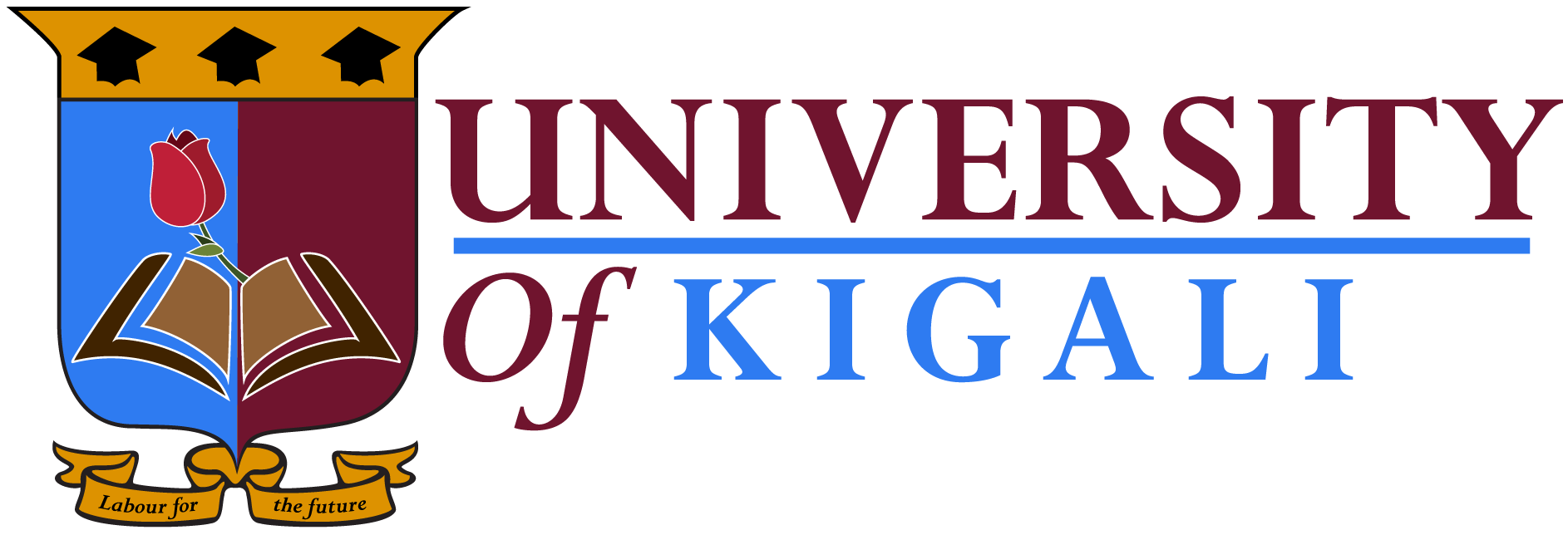Journal of Financial and Management Sciences

ISSN: PRINT 3078-5111/ ONLINE: 3078-512X Crossref DOI:10.70970
Editorial: Education and Research for a Sustainable Future
The University of Kigali (UoK) is committed to the transformative power of education in nation-building and sustainable development. As the world strives toward the Sustainable Development Goals (SDGs), UoK recognizes that higher education and research must lead in generating innovative solutions to complex social, economic, and environmental challenges.
Aligned with Rwanda’s National Strategy for Transformation (NST1) and Vision 2030, UoK is dedicated to promoting green development and sustainable practices across its academic programs. Our goal is to ensure that education fosters not only knowledge but also a commitment to sustainability, empowering future leaders to contribute to Rwanda’s development and global environmental goals.
This journal of finance and management science reflects the University’s focus on research across diverse fields—including ICT, law, business, education, management, finance, and environmental sustainability—while emphasizing solutions that address the challenges of a green economy. This edition includes peer-reviewed articles that offer insights into how innovation and responsible leadership can drive economic growth, technological advancements, and social transformation in the context of sustainable development.
We hope this issue will inspire researchers, policymakers, and practitioners to collaborate in fostering green solutions that advance both national and global development goals.

Editors
Editor-in-Chief:
- Dr. Ronald Kwena– University of Kigali
Expertise: Project Management, Social Transformation, and Sustainable Development
Associate Editors:
- Prof Felix Maringe– University of Kigali
Expertise: Higher Education Leadership, Policy in Education, and Sustainable Development in Education Systems. - Prof Joseph Lekunze – North West University, Business School, South Africa. Expertise: Agricultural Economics.
- Prof Richardson Shambare– University of Fort Hare, South Africa
Expertise: Sustainable Finance, Microfinance, and Economic Policy - Prof Ogechi Adeola– University of Kigali.
Expertise: Marketing and Entrepreneurship
External Reviewers
- Prof Alfonso Duran Heras – Universidad Carlos III de Madrid, Spain. Expertise: Business Administration/ Engineering Management
- Prof Chimucheka Tendai – University of Fort Hare, South Africa
Expertise: Management - Prof Lucy Ojode – Texas Southern University. Expertise: Strategic management.
- Prof Janet Bagorogoza – Makerere University, Business School.
- Expertise: Human resource management.
- Prof Geoffrey Gitau –Murang’a university, Kenya. Expertise: ICT / Engineering Innovation
- Dr. Simon Nadeem– Derby University, United Kingdom. Expertise: Supply Chain Management
- Dr Lerato Mdaka – North West University
- Expertise: Business /Entrepreneurship
- Dr Benjamin Mudaheranwa – University of Rwanda
Expertise: Business Finance
- Dr Willy Mugenzi– Jaume University, Spain.
Expertise: Strategic Leadership
- Dr Jack Bwalya –University College Dublin, Ireland
- Expertise: health policy, public opinion on healthcare and politics
- Dr Placide Kwizera –National Bank of Rwanda
Expertise: Economics
- Dr Wilberforce NUWAGIRA–National Bank of Rwanda
Expertise: in Mathematical Statistics.
- Dr Mathias Karangwa–National Bank of Rwanda
Expertise: Economics
Dr Annie Uwimana–National Bank of Rwanda
Expertise: Economics
Internal Reviewers
- Professor Oniye Abdulrazak– University of Kigali
Expertise: Education, Guidance and Counseling - Professor Singh Narayan Satyendra– University of Kigali
Expertise: Commerce - Professor Wassaja Kiwanuka – University of Kigali
- Expertise: Education, Pedagogy for Social Transformation.
- Dr. Musoni Wilson– University of Kigali
Expertise: Computer Science, ICT for Development, Digital Innovation, and Green Technology. - Dr. Zikamabahari Jean de Dieu– University of Kigali
Expertise: Environmental Sustainability, Green Innovation, and Climate Change Mitigation. - Dr. Ruth Odengo– University of Kigali
Expertise: Human Resource Management. - Dr. Akumuntu Joseph– University of Kigali
Expertise: Procurement and Transportation Management. - Dr. Dushimimana Jean De Dieu– University of Kigali
Expertise: Management and Development. - Dr. Tarus Thomas– University of Kigali
Expertise: Finance and Economic Development. - Dr. Gachiri Wilson– University of Kigali
Expertise: Economics and Sustainable Growth. - Dr. Kabanda Richard– University of Kigali
Expertise: Economics, Public Policy. - Dr. Afolabi Luqman– University of Kigali
Expertise: Economics, Green Finance. - Dr. Owino Elizabeth– University of Kigali
Expertise: Educational Pyschology. - Dr. Wabala Samuel– University of Kigali
Expertise: Human Resource Management and Development. - Dr. Bugingo Emanuel– University of Kigali
Expertise: Information Technology and Digital Innovation.

Author’s Guidelines
- Manuscript Preparation
Manuscripts must be in Microsoft Word, double-spaced, with 12-point font and 1-inch margins. They should include the following sections: Title Page, Abstract, Research Highlights, Keywords, Introduction, Methods, Results, Discussion, Recommendations, Acknowledgments, References, Tables, Figure Legends, and Figures. - Title Page
Include the title, author names, affiliations, a short title (max 12 words), and contact details for the corresponding author. - Abstract
A brief summary of the purpose, methodology, findings, and conclusions (max 300 words). - Keywords
A maximum of 6 keywords. - Introduction
Provide context, purpose, and background for the paper, linking relevant literature with the study’s objectives. - Literature Review
Summarize key theoretical foundations and previous work on the subject, providing critical analysis. - Methodology
Describe the study’s methods, including sampling and analysis techniques, and discuss ethical considerations. - Findings
Present data clearly using tables, figures, and statistical tests. - Discussion
Interpret the findings in relation to existing knowledge, and suggest areas for further research. - Recommendations
Offer concise and actionable recommendations. - References
Use APA style (version 20). - Tables and Figures
Number consecutively and provide descriptive titles and legends. - Acknowledgments
Mention any funding or assistance received. - Reviewers
Suggest two potential reviewers not affiliated with UoK. - Article Classification
Papers may be research papers, technical papers, case studies, or literature reviews.
Call for Papers (Submit by 20 December 2024 for the March publication).
The journal of Finance and Management Sciences is a bi-annual issue.
We invite authors to submit papers for the upcoming issue, particularly those addressing sustainable development challenges. Submissions from diverse disciplines are encouraged, and we look forward to your contributions to this highly respected journal.
Publication Ethics and Malpractice Statement for the Journal of Financial and Management Sciences
The Journal of Financial and Management Sciences (JFMS) is committed to upholding the highest ethical standards in all aspects of the publication process. This statement outlines the ethical responsibilities of authors, editors, reviewers, and publishers to ensure integrity, transparency, and accountability in scholarly publishing.
1. Responsibilities of Authors
- Originality and Plagiarism: Authors must ensure that their work is original and has not been published elsewhere. Proper citations should be provided for all referenced work.
- Data Integrity: Authors must present accurate data and provide access to raw data if required for verification.
- Acknowledgment of Sources: All contributions of others must be properly acknowledged.
- Conflict of Interest: Authors should disclose any financial or personal conflicts of interest that
may influence their work. - Multiple Submissions: Manuscripts submitted to JFMS must not be under consideration or
published elsewhere.
2. Responsibilities of Editors
- Editorial Independence: Editors will evaluate manuscripts solely on their academic merit
without regard to race, gender, or political affiliations of the authors. - Confidentiality: Editors must maintain the confidentiality of submitted manuscripts and will not disclose information to anyone outside the editorial process.
- Conflict of Interest: Editors must recuse themselves from handling manuscripts where conflicts of interest exist.
- Decision Making: Editors are responsible for making final decisions on publication, guided by the journal’s policies and ethical guidelines.
3. Responsibilities of Reviewers
- Confidentiality: Manuscripts received for review must be treated as confidential documents.
- Objectivity: Reviews should be conducted objectively, with clear and constructive feedback.
- Acknowledgment of Sources: Reviewers should identify any relevant work not cited by the
authors and report any ethical concerns, such as plagiarism. - Timeliness: Reviewers should respond promptly and complete reviews within the agreed timeframe.
4. Responsibilities of the Publisher
- Publication Integrity: The publisher ensures that the journal operates transparently, upholding
ethical standards and providing mechanisms for resolving disputes. - Archiving: The publisher will maintain an accessible, permanent archive of all published articles.
- Corrections and Retractions: Mechanisms are in place to publish corrections or retractions when errors or misconduct are identified.
5. Ethical Oversight
The JFMS adheres to guidelines set forth by the Ethics Committee. The journal ensures the following:
- Mechanisms for addressing allegations of misconduct.
- Processes for ethical oversight of studies involving human or animal subjects.
- Policies to address complaints and appeals.
6. Reporting Ethical Concerns
Ethical breaches can be reported to the journal’s editorial office. Allegations will be handled promptly
and transparently, adhering to COPE guidelines.
For further inquiries, please contact the editorial team at [Journal Email Address].
This statement ensures JFMS operates in line with global best practices, fostering trust and respect
within the academic community.
Important dates
Publication dates | Closing date for submitting your article |
|---|---|
30 March 2025 | 30 December 2024 |
30 September 2025 | 30 June 2025 |
All submissions should be sent via Submit Manuscript here
Vol. 1 No. 1 (2025): Special Issue: Sustainable Development
Access published journals here
